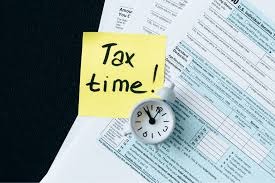The Importance Of Year-Round Tax Planning For Small Businesses
Navigating taxes can be stressful for small business owners. You might think it’s enough to scramble through receipts and forms once a year. However, year-round tax planning is key to financial stability. Taxes aren’t just a once-a-year task. Planning for the future can save you money and headaches. It also lets you make informed decisions at crucial moments. For example, understanding deductions or credits can significantly reduce your tax burden. If you’re involved in business tax preparation in San Bernardino, you know local regulations can change quickly. Staying informed means you’re not caught off guard. Think of year-round planning as routine care for your business’s financial health. It helps avoid surprises and keeps your business running smoothly. You gain peace of mind knowing you’re equipped for whatever tax season throws your way. Plus, you set your business up for success by anticipating challenges before they arise.
Table of Contents
Benefits of Year-Round Tax Planning
Regular tax planning offers numerous benefits. First, you can optimize your deductions throughout the year rather than scrambling to find them at tax time. Second, you increase cash flow by planning for tax payments in advance, preventing a large, unexpected bill. Third, you can identify and resolve errors before they become bigger problems.
Common Misunderstandings
Many business owners believe that tax planning is only for large corporations. However, small businesses benefit greatly from regular tax planning. Another misunderstanding is that tax planning takes too much time. In reality, consistent planning saves time by avoiding rushed work at year-end.
Steps to Effective Tax Planning
Here’s how to start:
- Keep accurate records. This means tracking income and expenses consistently.
- Meet with a tax advisor quarterly. This ensures you’re aligned with current regulations.
- Review your financial statements regularly. This practice identifies trends and potential issues.
Tax Planning vs. Tax Preparation
It’s crucial to distinguish between planning and preparation. Planning is proactive. It involves strategizing and making informed decisions throughout the year. In contrast, preparation is reactive. It’s about compiling documents and filing returns during tax season. By planning year-round, you ease the preparation process.
Comparison of Tax Planning and Tax Preparation
| Aspect | Tax Planning | Tax Preparation |
| Timing | Ongoing | Annual |
| Focus | Strategy | Documentation |
| Goal | Minimize Taxes | Meet Filing Requirements |
Legal and Regulatory Changes
Tax laws change often. Keeping up with these changes is crucial for compliance. For example, the IRS website offers updates and resources to help you stay informed. Regularly reviewing these resources can help you avoid penalties.
Tools for Tax Planning
Several tools can assist with tax planning. Accounting software helps track expenses and income. Tax calculators provide estimates for tax liabilities. Business owners should also use payroll software to ensure accurate withholding. Each of these tools contributes to effective planning and decision-making.
READ MORE : From Cleanings To Smile Makeovers
Conclusion
Year-round tax planning is essential for small business success. It offers benefits like maximizing deductions, optimizing cash flow, and staying compliant with changing regulations. By distinguishing between planning and preparation, you can effectively manage your business’s tax responsibilities. Utilize available tools and resources. Doing so helps you anticipate challenges and ensures your business remains smooth and compliant. Investing time in tax planning today secures a stable future for your business.






